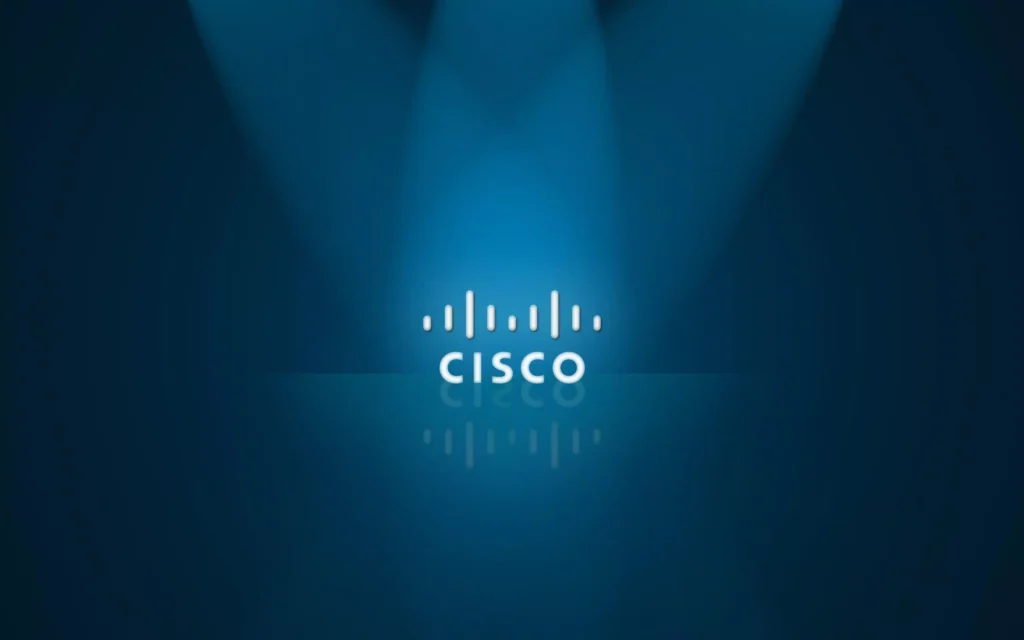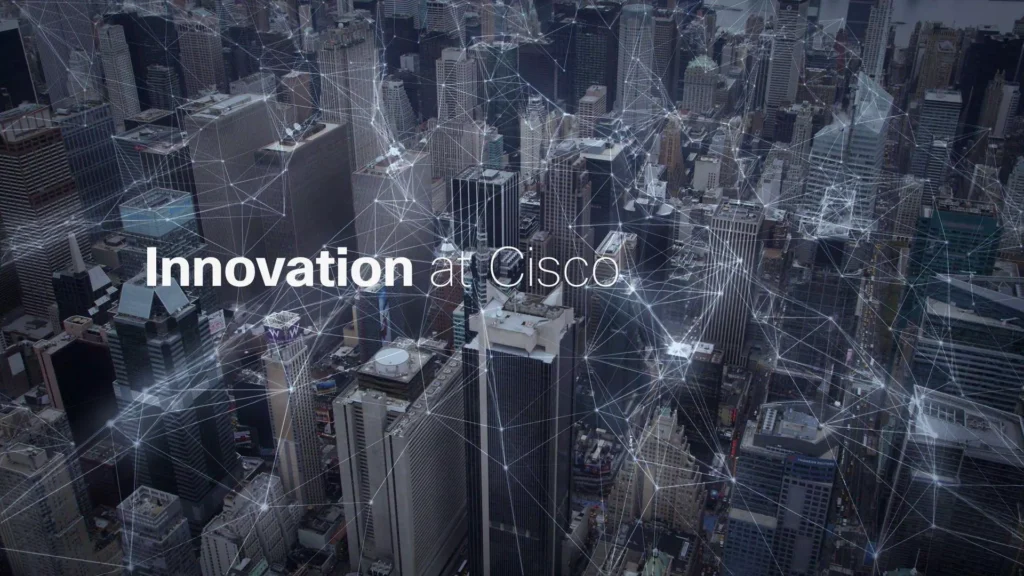Did you know that Cisco certifications account for the highest average salary in the networking industry according to the Global Knowledge IT Skills & Salary Report? Getting a CCIE certification increases your earning potential and opens up new career opportunities.
Table of Contents
What is CCIE?
CCIE stands for “Cisco Certified Internetwork Expert” The CCIE is Cisco Systems’ top-tier certification for network engineers. It’s one of the most sought-after credentials for network professionals looking to stand out in today’s IT job market.
CCIE stands for Cisco Certified Internetwork Expert, and it’s the highest level of certification available from Cisco Systems, the world’s largest networking technology vendor. By earning your CCIE, you demonstrate your deep understanding of Cisco technologies, your expertise in advanced network design, your troubleshooting skills, and your ability to resolve complex network issues in real-world situations.

Why is CCIE Important?
There are several compelling reasons to pursue CCIE certification:
- Validation of Expertise: CCIE is known for its rigorous testing process, which includes both a written knowledge exam and an on-the-spot lab exam that simulate real-world network issues. With a CCIE, you’re proven to have an in-depth knowledge of Cisco technologies, and you’ve demonstrated that you can solve complex network challenges.
- Enhanced Credibility and Marketability: CCIE is one of the most prestigious networking certifications in the world. It carries a lot of weight in the minds of employers and makes you stand out from the crowd when it comes to networking jobs in the IT industry. CCIE professionals are in high demand and earn high salaries.
- Career Advancement: CCIE certification opens the door for leadership and specialist network engineering roles. It prepares you for career progression and enables you to work on more demanding and rewarding networking projects.
Who Should Pursue CCIE?
CCIE certification is best suited to network engineering, network architect, and IT professionals looking to advance their career in the networking industry. It is especially important for:
- Have a solid background in Cisco technology and networking ideas.
- Have at least 3 to 5 years of experience designing, deploying, and troubleshooting networks.
- They love to network and want to be the best in their field.
- They are self-motivated, self-disciplined, and dedicated to rigorous preparation for the rigorous CCIE examinations.
CCIE Certification Paths
CCIE Routing and Switching (CCIE R&S): This track is the most widely used and fundamental of the CCIE tracks. It concentrates on core routing & switching technologies essential to enterprise networks. Knowledge areas included in CCIE Research and Development tracks include:
- Routing Protocols (OSPF/BGP/EIGRP/etc.)
- Advanced Switching Technologies (VLANs/QoS/MPLS)
- Network Security Principles (Firewalls/VPNs/ACL/etc.)
- IP addressing and Network Design Principles
- Troubleshooting Methods and Tools
The CCIE Research and Security (R&S) lab exam format is designed to simulate real-world network challenges where you will have to solve complex issues related to routing, switching and basic security settings.
Other CCIE Tracks
While CCIE Research and Engineering (R&E) is the most popular track, Cisco also provides several other tracks that focus on specific areas of network knowledge. Here’s a quick look at some of the most popular tracks:
- CCIE Security: Dedicates itself to cutting-edge security solutions, such as firewalls and IID/IPS (Intrusion Detection and Prevention) systems, as well as the principles of secure network design.
- CCIE Collaboration: Qualified in Cisco collaboration technologies including video conferencing and unified communications as well as telepresence.
- CCIE Data Center: Network virtualization (NVM), fabric architectures, and Storage Area Networks (SAN) knowledge.
- CCIE Service Provider: It focuses on services provider network technologies and protocols, such as MPLS, VPN, and traffic engineering.
Earning a CCIE Certification: The Road to Expertise
Prerequisites for CCIE Exams: CCIE exams require candidates to have a good understanding of networking concepts and applicable Cisco technologies prior to taking the exams. Generally, the ideal candidate should have:
- Network Design, Network Implementation, Network Troubleshooting. Minimum 3 – 5 years of experience.
- A solid background in Cisco technologies, including Cisco Certified Network Associate (CCNA) and Cisco Certified Network Professional (CCNP) certifications.
- Deep understanding of networking basics, including routing, switching, and network security.

CCIE Exam Structure
The CCIE exam process is two-fold, consisting of:
Written Knowledge Exam: This computer-based test evaluates your theoretical understanding of Cisco technology and networking principles related to your preferred CCIE track. The test typically consists of multiple-choice questions, simulation questions, and drag and drop questions, and lasts approximately 120 minutes.
Practical Lab Exam: The CCIE lab exam is the most demanding part of the certification. It is an 8-hour hands-on laboratory exam where you will solve and configure real world network problems in a simulation environment. The format of the lab exam differs between CCIE tracks, but typically follows a 2-part module structure.
* Module 1: Design (3 hours): This module may include customer needs analysis, network solution design, and documentation of your design decisions. It often follows a step-by-step process, where your initial choices influence the next steps in the lab.
* Module 2: Deploy, Operate, and Optimize (5 hours): This module addresses the implementation of your proposed network solution, network troubleshooting, and performance optimization. You will use Cisco devices and CLI to set up protocols, resolve connectivity issues, and validate network performance.
Preparation Strategies
To earn your CCIE, you need to be consistent, diligent, and have a clear plan of study. Here are some of the best ways to earn your CCIE:
- Utilize Official Cisco Learning Resources: Cisco offers a wide range of training tools to help you prepare for the CCIE exam, including:
- Official certification guides for each CCIE track.
- Instructor-led training courses offered by Cisco or authorized partners.
Cisco Learning Network (CWN) online learning resources such as study materials, practical exams, and expert communities.
Leverage Third-Party Training Providers and Practice Exams
Integrate your official Cisco tools with best-in-class training tools and practice exams from trusted third-party providers. These can include in-depth training materials, lab simulations and practice questions specific to your CCIE track.
Build Hands-on Experience
The best way to get ready for CCIE lab exams is to get hands-on experience with Cisco technology. You can do this by creating your own lab using real or simulated Cisco devices. Alternatively, you can attend online labs or attend virtual workshops provided by training providers.
Importance of Self-Discipline, Time Management, and Focus
The path to CCIE certification requires a lot of discipline and time. Set a specific study schedule, focus on your learning objectives, and focus on getting your CCIE certificate.
Exam Tips and Resources
Here are some valuable tips to enhance your performance in both the written and lab exams:
Written Exam:
- Examine official Cisco documents and study guides thoroughly.
- Use practice tests to spot gaps in your knowledge and create test-taking habits.
- Efficiently manage your time during the test. Time management during the test.
- You don’t want to leave anything unsaid; if you have to guess, guess right.
Lab Exam:
- Create a workflow for troubleshooting and follow this workflow in the laboratory.
- The best way to do this is to write down your steps in a clear and concise manner.
- Train yourself to configure and troubleshoot in a real-time environment to simulate the stress of a real-world test.
- Learn what equipment and resources are available in the laboratory.
- Don’t be discouraged if you don’t know what to do next; concentrate on using your expertise and problem solving skills.
Here are some additional resources that can be helpful in your CCIE preparation journey:
* Cisco Learning Network: [https://learningnetwork.cisco.com/s/](https://learningnetwork.cisco.com/s/)
* CCIE communities and forums: There are several online communities and fora for CCIE candidates where you can meet up with classmates, ask questions and exchange study ideas.
* Vendor-authorized training partners: Cisco works with certified training partners who provide in-depth CCIE training courses and tools.
In the following sections, we will cover the scope and career opportunities with CCIE in USA, followed by salary expectations with CCIE in US.
Salary Expectations with CCIE in the USA
Acquiring the CCIE certification can have a significant impact on your salary prospects in the IT industry, especially in the United States. Here is a comprehensive look at the salary expectations of CCIE professionals based on various factors:
Average CCIE Salary:
According to Payscale, Glassdoor, and other reliable sources, the average salary for a full-time CCIE professional in the United States ranges from $120,000 to $180,000 per year. It’s important to note, however, that this is a wide range and your actual salary will depend on a number of factors listed below.
Factors Affecting Salary:
There are several factors that affect a CCIE’s salary in the United States. Here are a few of the most important ones:
* Specific CCIE Track: Your CCIE track can also affect your salary. Typically, CCIE Security and CCIE Center tracks, which focus on specialized and high-demand skill sets, command higher salaries than the base CCIE Research and Development track.
* Years of Experience and Proven Track Record: Your level of experience and previous experience in network engineering have a big impact on your salary. People with a lot of experience and a proven track record of successfully handling complex network environments tend to make more money.
* Location: CCIE salaries tend to be highest in tech hubs such as San Francisco and New York, while salaries in Seattle and other cost-of-living areas may be slightly lower.
* Employer Size and Industry Sector: The average salary for CCIE professionals tends to be higher at larger companies and those with more complex network environments than smaller companies. In addition, industries that rely heavily on technology, like finance, healthcare and telecommunications, tend to pay more for CCIE experience.
* Possession of Additional Certifications or Specializations: Acquiring new certifications or specialisations in addition to your CCIE can improve your knowledge and marketability, which may result in higher salary offers.Salary Ranges by CCIE Track:
While it can be difficult to provide precise salary information due to market volatility, here is a summary of the average salary ranges for various CCIE specialisations in the United States (using Payscale data and Glassdoor):
* CCIE Routing and Switching (R&S): $110,000 - $160,000
* CCIE Security: $125,000 - $180,000+ (due to the high demand for security expertise)
* CCIE Collaboration: $115,000 - $170,000
* CCIE Data Center: $130,000 - $180,000+ (due to the growing demand for data center expertise)
* CCIE Service Provider: $110,000 - $165,000
However, keep in mind that these are only rough estimates and your real salary may differ depending on the individual factors mentioned above.
Additional Considerations:
- Non-monetary benefits: In addition to salary, many employers provide attractive benefits packages for CCIE professionals, such as health insurance, retirement benefits, stock options and paid time off.
- Negotiation is key: When you’re offered a job, you’ll want to be ready to negotiate salary based on experience, skills, and your value to your employer. Showing off your CCIE certifications and how relevant they are to your role can increase your bargaining power.
- Job satisfaction: Salary is important, but it’s not the only thing that matters. What matters is the position you’re in and what you’re looking to achieve in your career. A high-quality job with a high-quality culture is just as important as a high-paying one.

Scope of CCIE
Technical Mastery
- CCIEs have a deep knowledge of networking technologies, standards, and best practices.
- They are experts in routing and switching, security and collaboration, as well as data center infrastructure.
- They also have extensive experience in designing, deploying and troubleshooting complex network architectures.
Design and Architecture:
- CCIEs are essential for building strong and scalable networks.
- They develop network architectures for large networks, taking into account things like redundancy, scalability, and security.
- Their architectural choices affect an organisation’s productivity and dependability.
Network Security
- CCIE Security experts protect networks from attack.
- They also set up firewalls, detection/prevention tools, and virtual private networks (VPNs).
- They are experts in cryptography, access controls, and security policies.
Collaboration and Unified Communications:
- CCIE Collaboration experts focus on unified communications technologies.
- They specialize in the development of voice over Internet Protocol (VoIP), video conferencing, and collaboration platforms.
- Their work improves corporate communication.
Data Center Infrastructure:
- CCIE Center experts are in charge of data center design, virtualization and storage.
- They also manage server farms, virtualize networks, and guarantee high availability.
- They play an important role in cloud computing and large data centers.
Service Provider Networks:
- CCIE Service Provider professionals work with carrier-grade technologies.
- They also control MPLS, BGP routing and service provider infrastructure.
- With their expertise, they make sure that internet service providers (ISPs) and telecom companies have a smooth connection.
Emerging Technologies:
- CCIEs are constantly up-to-date on industry trends and new technologies.
- They support SDN (Software-defined networking), network automation and cloud integration.
- Their ability to innovate keeps them ahead of the curve in an ever-changing market.
Leadership and Decision-Making:
- CCIEs often lead network teams, guiding junior engineers.
- They are responsible for making important decisions during network interruptions or upgrades.
- Leadership and project management skills are key to organizational growth and success.
Conclusion
Getting your CCIE certificate is a great achievement that shows your knowledge and dedication to networking. It opens up a world of possibilities and prepares you for a rewarding career in the IT industry, especially in the United States. Understanding the factors that affect CCIE salaries will help you navigate the industry and negotiate a fair compensation package.
Also Read:
- Judi Love’s Reaction To Lorraine Kelly At BAFTA TV Awards Goes Viral; ITV Host Says Brian Cox Telling Her To “Eff Off” Is A Career Highlight
- Sarah Lancashire Wins Best Leading Actress For Second Time — BAFTA TV Awards
- As Seinfeld Receives Honorary Degree at Duke, Students Walk Out in Protest
- Ilon Specht, Who Empowered Women With ‘I’m Worth It’ Ad, Dies at 81
- Gov. Jim Justice Faces Heavy Business Debts as He Seeks Senate Seat
Popular Categories:
Follow these social media links: